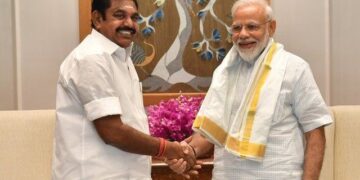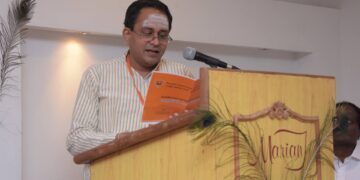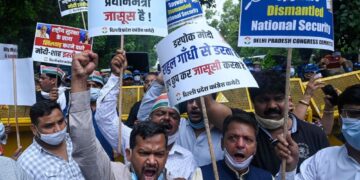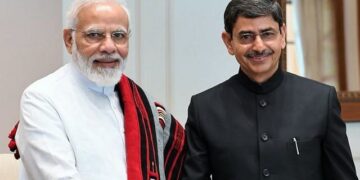 ஜெனரல் சரத் பொன்சேகா கைது செய்யப்பட்டமையைக் கண்டித்து குருணாகல் மணிக்கூட்டுக் கோபுரச் சந்தியில் நேற்று மாலை பாரிய ஆர்ப்பாட்டம் ஒன்று நடைபெற்றது.
ஜெனரல் சரத் பொன்சேகா கைது செய்யப்பட்டமையைக் கண்டித்து குருணாகல் மணிக்கூட்டுக் கோபுரச் சந்தியில் நேற்று மாலை பாரிய ஆர்ப்பாட்டம் ஒன்று நடைபெற்றது.
எதிர்க்கட்சிக் கூட்டணியைச் சேர்ந்த சுமார் 3 ஆயிரத்துக்கும் அதிகமானோர் ஆர்ப்பாட்டத்தில் கலந்துகொண்டு அரசாங்கத்துக்கு எதிராக கோஷங்கள் எழுப்பினர்.
ஆர்ப்பாட்டத்தின் பின்னர் ஐ.தே.கவின் தவிசாளர் காமினி ஜயவிக்ரம பெரேரா, முன்னாள் நாடாளுமன்ற உறுப்பினர் தயாசிறி ஜயசேகர, நாமல் கருணாரத்ன ஆகியோர் கலேபண்டார ஆலயத்தில் மத வழிபாட்டில் ஈடுபட்டனர்.











FOR IMMEDIATE RELEASE
AHRC-FST-014-2010
February 12, 2010
A Statement from the Sri Lanka Guardian forwarded by the Asian Human Rights Commission
SRI LANKA: Diary of Terror- Eighth Report- 9th February
Sri Lanka Human Rights Watch
A Secret Trial before a Kangaroo Tribunal
Why is the Sri Lankan government avoiding the country’s courts?
(February 10, Colombo, Sri Lanka Guardian) The case against Sarath Fonseka, the common candidate for the opposition who was able to win, even going by the official results, over forty percent of the votes in the last presidential election, is certainly one of the most important political cases ever to arise. However, in this case the government is making a deliberate attempt to avoid the Sri Lankan courts and instead, take the case before a military court.
Obviously this move, which appears to be most cowardly, is motivated by many factors. Some of those factors are as follows:
Manipulation of the charges – under the Criminal Procedure Code of Sri Lanka bringing a criminal trial requires the charging of the offenders and this is a serious process. The courts have to be satisfied that the charges are properly made according to the law and if this is not done correctly that itself is a reason to reject the charges.
One of the ways to avoid all the serious implications of charging an accused on very precise charges acceptable to the Sri Lankan courts is to go before a military tribunal. In such a tribunal dealing with the intricate problems of the law may be dismissed. The precise legality of the charges may also remain an important aspect of a military trial.
However the capacity to manipulate the process is easier within the context of a military tribunal, particularly if the tribunal is to be held secretly without the knowledge and participation of the public and without the proper participation of lawyers as required by the courts in Sri Lanka.
In a military tribunal it is also possible to manipulate the selection of the judges.
If the case was to be heard in a Sri Lankan court the judges would be those who are already appointed to the High Courts and there is hardly any possibility of selection of these judges by the government. Sri Lankan judges are professional judges with the necessary qualifications.
Whatever be the skepticism that has grown up over the extent of the Sri Lankan judiciary in recent times still the basic functioning of the courts is through the procedures established by law. Therefore the possibility to manipulate the judges is much less in the courts of Sri Lanka while such manipulation is quite possible within a military tribunal setting.
Already many senior army officials have been forced into retirement or subjected to other forms of punishment purely for political reasons of supporting the former army commander Sarath Fonseka or due to their alleged participation in politics. The arrest of Sarath Fonseka was carried out by a selection of army officers who were known to have been demoted for disciplinary problems by Fonseka when he was army commander. The antagonism of these officers was manipulated in the process of the arrest itself. Thus, in the interrogation process, such selective actions are possible and the interrogation procedures that will be followed are unknown. Thus the capacity to manipulate the process is much more possible in a military tribunal than in the courts.
The prevention of publicity
In Sri Lankan law holding of trials in open court is a fundamental principle which is always adhered to. This is part of the international principles relating to fair trial which has been incorporated into Sri Lankan law ever since the British system was introduced into Sri Lanka.
In an open court any case that attracts publicity will be reported extensively in the media. All arguments by lawyers and statements by the accused; the questioning of witnesses and even various statements by the judges when a trial of this nature takes place, are publicised. This same publicity may be completely denied in a military trial which may be held in secret and therefore the political impact of the trial may be completely denied.
Particularly in an issue of such public importance the denial of such publicity would help the government to avoid embarrassing questions which might damage its own reputation. In a public trial it is quite possible that not only matters relating to the accused but matters relating to the government itself could be revealed. All such politically damaging information could be kept away from the public eye by having the trial in secret.
Thus the entire process of taking the case away from the courts and instead having a military tribunal has been done for the purpose of the denial of a fair trial and to deny the public the information that they are entitled to receive in a case of this nature.
SRI LANKA: Diary of Terror- Ninth Report- 10 February 2010
Sri Lanka Human Rights Watch
The continuous imprisonment of the popular opposition politician Sarath Fonseka
(February 11, Colombo, Sri Lanka Guardian) Sarath Fonseka’s wife visited him in the custody of the navy on the evening of February 9. She was accompanied by a lawyer who is also a well known political figure. Fonseka is being held in navy custody although he was arrested, allegedly due to some offenses during his tenure as commander of the army and Chief of Defense Staff. The reason as to why he is being kept in naval detention or who made this decision has not been explained. His wife reported that Fonseka has refused to take any food or water since the time of his arrest.
Being a man who has worked against terrorism for a long time he appears to be taking precautions for his security. His wife is providing medicine for him which he has to take every six hours due to intestinal injuries he suffered during the suicide bombing in April 2006. His wife further reported after her visit that neither she nor members of her family trust the people who are holding him or the political authorities directing his detention.
Mrs. Fonseka has repeatedly said that the arrest was done in an extremely rude manner and that her husband has not been treated with the respect he deserves as a former army commander but rather than an animal.
Protest Demonstrations-‘country before self’
Several political parties organised a demonstration near the country’s main court complex in Colombo to protest Fonseka’s arrest who was the common candidate for the opposition in the last presidential elections. Initially a large crowd gathered near the courts complex and was protesting peacefully. The people carried pictures of Fonseka with the slogan ‘country before self’. The people shouted slogans that the election had been stolen from them and that the general had been imprisoned. They demanded his immediate release.
Another group of persons arrived; organised by the government to disrupt the peaceful demonstration. They gathered at the police station at Kahelwatte. Photographs show a group of persons standing near the police station, many of whom were carrying sticks and stones. In recent years these types of groups backing of opposition groups were a common feature. They are usually led by politicians together with criminal elements who have been brought in for the purpose. The pictures also show a policeman standing near the group. At one point the group started jeering at the protesters and tried to provoke them. They then started throwing stones which injured a few people. A picture of one protester, an elderly person who was struck on the chin by a rock was shown in the media.
At this stage the protesters moved towards the group and began to chase them. The protesters outnumbered the attackers who fled towards the police station where they took shelter. Obviously they had the protection of the police officers.
At this stage, the police who had been present all the time, turned against the demonstrators and started firing tear gas canisters and using water cannons on them. However, the demonstrators continued their protests and their numbers swelled to a much large crowd.
Wife’s Speech
Sarath Fonseka’s wife spoke to the crowds and explained the situation and also explained that a case would be filed in the courts that day stating that her husband’s fundamental rights had been violated and that he needed the immediate intervention of the court to ensure that no torture would be used against him. Also that he would be provided with protection for his life and released as the detention itself is in violation of his rights as a citizen to participate in the elections. The petition further stated that the sole purpose of the arrest was to disrupt the election petition that is being filed calling for the annulment of the last election on the basis of serious violations that occurred.
The television showed pictures of other protests held at Galle, Kandy and Umpara. In all these demonstrations there were large gatherings. The police intervened at the demonstration at Galle and disrupted the demonstration by the people. It is the right of people in Sri Lanka to participate in demonstrations. However, the police intervened in large numbers to stop this demonstration. Similar attempts were also made in Kandy and Umpara.
Media events
There were several media events in Colombo at which the government tried to justify the arrest of Sarath Fonseka and the attacks on the protestors. The government spokesman, Lakshman Yapa Abeywardena who is also the Minister for Mass Media and Information, tried to justify the arrest and urged people not to protest. He tried to explain that the alleged offenses related to some military offenses while the general was still in command of the army.
Obviously the government abandoned the earlier allegation that the general was engaged in an attempt to assassinate the president and his wife. If these allegations were pursued by the government then the investigations must be conducted by the police and the case brought before the normal courts. The government is trying hard to avoid the courts because it would raise many doubts about the actual case and the general and he would still have the avenues open in the normal courts systems to challenge the government’s position. The government appears to be bent on keeping the retired general out of the political scene.
Damage Control
On February 9 the parliament was dissolved and t with that began a period for the parliamentary elections. The government was trying to address the damage it caused to itself by the arrest of Sarath Fonseka. On the other hand the government seems to view the presence of this new politician who has won massive popularity in recent times as an embarrassment.
Meanwhile, a government spokesman, Wimal Weerawansa, repeated to the media that a list was made in order to assassinate a number of people in government including him. If, in fact, there were any such allegations then the inquiries should have been conducted by the police and the retired general would have to be charged before a normal court. It has become a normal part of the political strategy for the government to generate criminal allegations against persons and to use the media to propagate such allegations. Mr. Weerawansa, who was formerly a JVP member who crossed over to the government, has been used mainly for this kind of propaganda purpose. In many instances he has come out with stories of scandals which have later found to have been baseless.
This story about the list of persons to be killed if the opposition’s election plans had succeeded was first used in 1982 by the then president, J.R. Jayewardene against his formidable political opponent at the time, ‘Vijaya Kumaranatunge, who was arrested and held in detention during the period while an election was taking place. At the time this episode was called the Naxalite Plot and it is exactly the same ploy that is being used this time against Sarath Fonseka.
The overall atmosphere created by this is one of tension within the country and the people are being dragged into to an intense situation of violence and insecurity due to the political rivalries that the government is pursuing during this election by trying to stifle the democratic process and the use of repressive measures. The overall situation is one of great instability and insecurity.
Under these circumstances the announcement by the Inspector General of Police of a gazette notification naming a number of new detention centres capable of holding over 12,000 persons has been seen by observers as an attempt to create space for holding a large number of political detainees in the coming months. Since the war with the LTTE ended in May 2009 there is no reason for the expansion of detention facilities except for the purpose of detaining political dissidents in the coming period.
Thus, the election atmosphere is one in which people fear that there will be far greater repression and terror used by the government.
# # #
About AHRC: The Asian Human Rights Commission is a regional non-governmental organisation monitoring and lobbying human rights issues in Asia. The Hong Kong-based group was founded in 1984. The above statement has only been forwarded by the AHRC.
Asian Human Rights Commission
19/F, Go-Up Commercial Building,
998 Canton Road, Kowloon, Hongkong S.A.R.
Tel: +(852) – 2698-6339 +(852) – 2698-6339 Fax: +(852) – 2698-6367
until we keep india in a corner seat, we cannot achieve anything
மகிந்த தமிழர் இலங்கை தேசிய இனத்தின் சொத்து என பேசி இருப்பதில் என்ன அதற்கு மீனிங் என எனக்குத் தெரியவில்லை ஆனால் புலியைச் சாட்டி இனியும் புலுடா விடலேலாது எண்டது மட்டும் விளங்குது.ஆனால் உழுந்தில சுட்ட தோசைக்கு இங் கிருந்து ஊருக்கு போவோர்க்கு புரியுதோ தெரியாது.